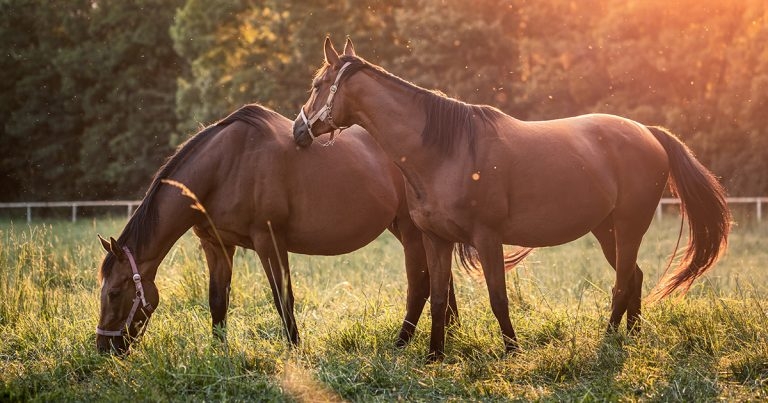13 Mar 2024
RVC researchers say their work with Cornell University found significantly higher levels of key indicators in cases of MLPL than in an adult control group.

Image © iStock.com / encierro
Scientists have warned that inbreeding is a contributing factor to mid and late-term pregnancy loss (MLPL) in Thoroughbred horses.
RVC researchers say the analysis, which has now been published in Equine Veterinary Journal, is the first of its kind to explore the issue and offers “critical evidence” of its potential impact on industry operations.
Between 5% and 10% of equine pregnancies end in early loss, with around 7% more falling into the MLPL category between day 70 of the gestation period and 24 hours post-parturition.
The college collaborated with Cornell University in the US to examine DNA samples from 189 individuals, including a control group of adults.
The analysis found MLPL samples showed significantly higher levels of key inbreeding indicators than the adults, while those from pregnancies which were lost early in gestation showed no significant difference to the control group.
Jessica Lawson, Alborada Trust Research Fellow at the RVC, said: “This research provides critical evidence showing that mating highly related individuals does have a tangible effect on our breeding operations, as there is a real risk of a mare losing her pregnancy late in gestation and failing to produce a foal at all that season.
“The take-home from our work should be to carefully consider breeding choices that involve mating of highly related individuals as, ultimately, this may increase the chance of the foal inheriting mutations which may not be compatible with life.
“We are already working on the next step, looking to identify these changes so more specific advice can be provided in the future.”
Although individuals with certain desirable characteristics are highly sought after for breeding purposes, the paper also points out that excessive inbreeding has been associated with an increased risk of retained placenta and lower semen quality in horses.